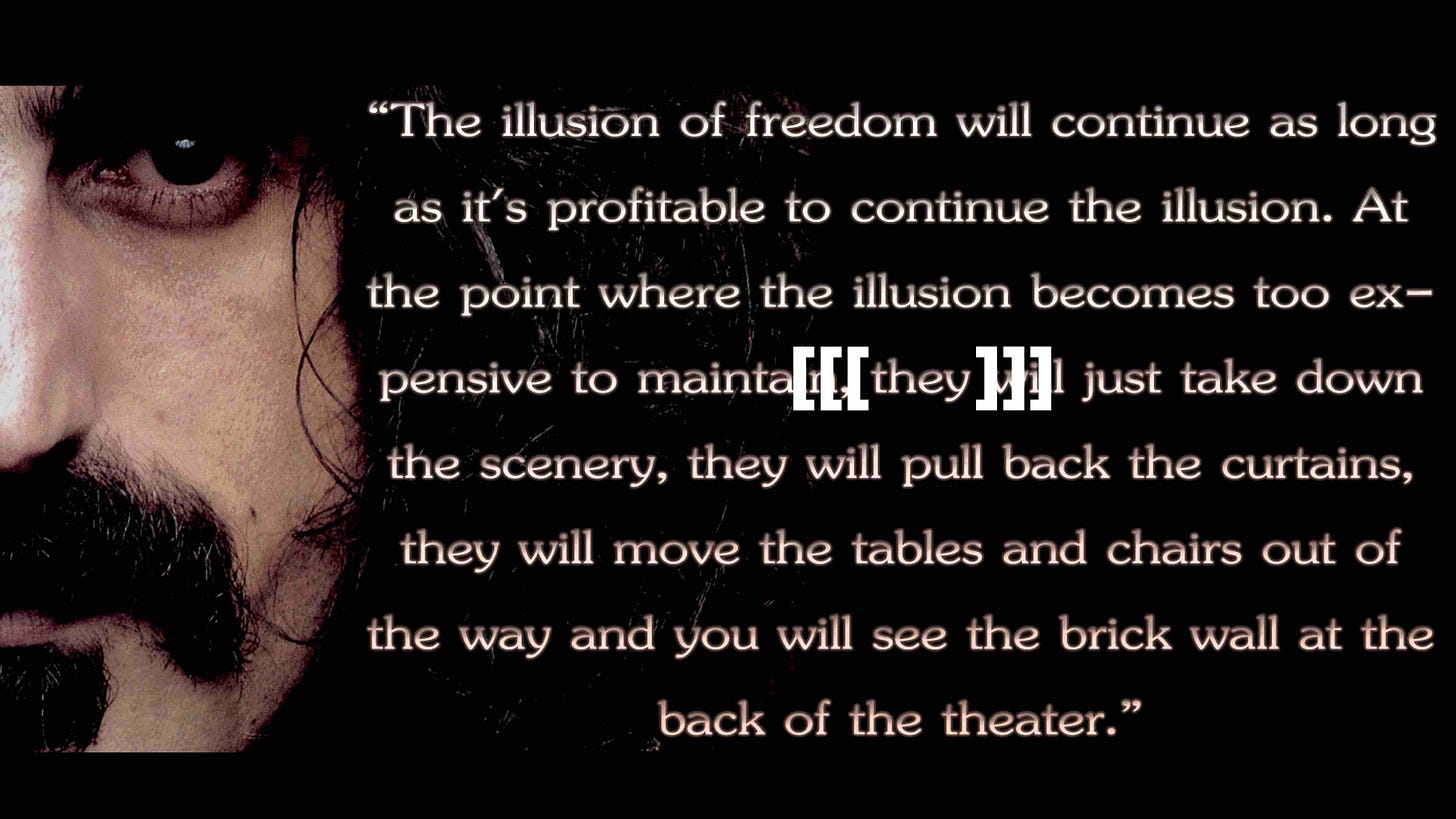Kushner’s Debacle: “Deal” Fizzles, Conference Implodes, by Kevin Barrett
Deal of the Century is a 1983 Hollywood comedy about crooked arms dealers conspiring to peddle new weapons that “allow for localized and conventional wars that will keep (the global arms industry’s) business viable into the next century.” Thirty-five years later, a non-fictional crooked businessman, Jared Kushner, has borrowed the title for his so-called Middle East peace plan. Is this some kind of sick joke? A bad Hollywood remake? Have Kushner and his accomplices Jason Greenblatt and David Friedman chosen this title for their so-called peace plan as a snarky acknowledgment that its real purpose is to keep the Zionist war on the Muslim East viable into the next century?
Kushner’s alleged peace plan was obviously set up to fail. It does not offer the bare minimum acceptable to Palestinians: A genuinely sovereign Palestine including all territories stolen by Israel in 1967, with its capital al-Quds, alongside an Israeli acknowledgment of the internationally-recognized Palestinian right of return and a plan—however gradual—for its implementation. Anything less is a non-starter.
Kushner’s plan does not just offer a little less than the above, nor even a lot less. It is a joke. According to Arab officials briefed on the plan, the Zionists would keep and expand their settlements on territories stolen in 1967. They would take all of al-Quds, leaving a few Palestinian neighborhoods on the outskirts. There would be no sovereign Palestinian state. Instead, the Palestinians would be herded into a slightly-expanded Gaza open-air concentration camp including a small portion of the adjacent Egyptian desert that would remain under Egyptian, not Palestinian, control. The resulting constellation of Bantustans would be labeled “New Palestine,” and its residents would have no sovereignty. Instead, they would actually pay their Israeli prison wardens for “protection.”
The “deal” amounts to the liquidation of Palestine and the completed genocide of the Palestinian people. Clearly Kushner’s radical Zionist advisors, Jason Greenblatt and David Friedman, know that their plan is not only unviable, but an insult to every Palestinian. The only thing it offers is money—as if the Palestinians, who have fought and sacrificed bravely for their cause for more than a century (losing tens of thousands of martyrs in the process) are willing to prostitute themselves in return for something even worse than humiliating surrender.
Clearly this grossly insulting proposal was designed to be rejected. Perhaps its real purpose is to unleash a new round of war justified by the public relations slogan: “We offered the Palestinians a very good deal, so good we called it ‘the deal of the century,’ but those ungrateful Palestinians wouldn’t accept it.” This is precisely what the Zionists have done in the past, notably after the 2000 Camp David Summit, during which they intentionally presented non-viable proposals in order to obtain a Palestinian rejection that would provide PR cover to go ahead with their 9/11 false flag, ruthlessly attempt to crush the Palestinian resistance, and trick the USA into invading and destabilizing regional nations that the Zionists consider enemies. All of this was in line with the Zionist strategy laid out in the 1996 Netanyahu-commissioned Clean Break document authored by neocons led by 9/11 suspect Richard Perle—roughly the same group that authored the September 2001 blueprint for 9/11 “Rebuilding America’s Defenses” that openly called for the coming “New Pearl Harbor.”
Since the Kushner-Greenblatt-Friedman “peace plan” is really a war plan, any geopolitical analysis of its ramifications must examine the conflict(s) that will accelerate once the plan is officially rolled out and rejected. Those conflicts will presumably be continuations of the ongoing, long-standing conflicts in the region.
Short- and Medium-Term Impact
First, the Israeli government, dominated by ever-more-extreme right-wing hardliners, will intensify its program of settlement building and ethnic cleansing. The Palestinians will be left with no choice but to continue their resistance, through peaceful demonstrations and rallies, the global BDS movement, and greater or lesser degrees of military resistance depending on their capabilities and strategic opportunities. The good news for Palestinians is that the shockingly insulting nature of Kushner’s Deal offers an opportunity to unify their ranks, ending or moderating the schism between the Palestinian Authority and the genuine resistance organizations including Hamas and Islamic Jihad. Ramzi Baroud suggests that newfound Palestinian unity around the rejection of Kushner’s “deal” could lead to a reconciliation between Hamas and non-corrupt elements of Fatah, followed by the resurrection of the Palestine Liberation Organization (PLO). Baroud writes that “the steps taken by Washington to isolate the PA through denying Palestinians urgently needed funds, revoking the PLO’s diplomatic status in Washington and shunning the PA as a political ally provide the opportunity to open the necessary political dialogue that could finally accomplish a serious Fatah-Hamas reconciliation. Israel, too, by withholding tax money collected on behalf of the PA, has lost its last pressure card against Mahmoud Abbas and his government in Ramallah. At this point, there is little else that the US and Israel could do to exert more pressure on the Palestinians.”
The US-Zionist loss of leverage offers the Palestinians real opportunities. The late Alan Hart, a former BBC Mideast correspondent and back-channel peace negotiator, argued for several years before his death in January 2018 that the Palestinians’ best strategy would be “dissolving the impotent and corrupt PA and handing back to Israel full and complete responsibility and accountability for occupation.” Such a move, Hart wrote, “would not only impose significant financial, security and other burdens on Israel, it would enable global discussion and debate about the conflict to be focused without distraction on the occupation and the need for it…to be ended.” This is essentially what Baroud is advocating in his recommendation that a unified PLO be revived. And now that the US is no longer bribing the PA to do Israel’s dirty work, such a scenario seems eminently feasible.
If the PA were dissolved, and Palestinians were to form a united Resistance front, the resulting stand-off would cry out for arbitration—but not by the usual (American) suspects. All past “peace processes” have been abysmal failures for one overriding reason: Zionists dominate US media, finance, and politics, so the US cannot be a reasonably neutral arbiter. Instead, it acts as an appendage of Zionism. Effective arbiters and negotiations-facilitators would have to represent entities that accept the broad international consensus as reflected in 70 years of UN resolutions. The United Nations General Assembly itself, or possibly a coalition of relatively independent nations, could be far more effective peace brokers than the Americans have ever been.
Along with unifying the Palestinians, Kushner’s “Fiasco of the Century” might also have the beneficial effect of unifying the relatively reasonable forces in the region in opposition to the plan, and in support of a newly united PLO presiding over the dissolution of the PA and demanding that the Zionists fulfill their obligations under international law. A broad coalition of nations in the Muslim East, led by the Axis of Resistance consisting of Iran, Syria, Lebanon, Iraq, and Yemen, but also extending to such non-Axis members as Turkey, Qatar, and indeed any other regional nation that can afford to forego Saudi bribes, will line up against Kushner’s ludicrous Deal. In the end, the Saudis and their evil twins the Emiratis will be left holding their bag of bribes that nobody wants.
The failure of the Deal could accelerate a regional realignment that has been developing during the draw-down of the war on Syria. Turkey and Qatar, both of which had originally been enthusiastic participants in the war on Syria, have been forced to re-think their priorities and strategies due to the triumph of the Syrian anti-regime-change struggle. Both nations will undoubtedly join the Axis of Resistance in heaping scorn on the Deal and supporting the Palestinian rejection of it.
In the long term, Kushner’s debacle will likely have the opposite of its intended effect: Instead of sealing the doom of the Palestinians, it will rally and unify the Palestinians and their supporters. The stillborn Deal will go down in history as a major strategic blunder. It may one day be viewed as a major milestone in the long road toward the liberation of Palestine.
Bahrain Conference Fiasco
On June 25 and 26, the corrupt tyrants of the House of Khalifa and their Saudi masters hosted a meeting of criminal oligarchs and their henchmen from four continents. The agenda: Kosher Nostra princeling Jared Kushner’s doomed attempt to bribe Palestinians into complicity in their own genocide.
Kushner’s idea, in a nutshell, was to strong-arm the Anglo-Zionist Empire’s Gulf puppet states into offering Palestine $50 billion in return for unconditional surrender. The vile terms of that abject surrender would come down like a hammer later, after the Palestinian mouse had nibbled the cheese.
But the mouse didn’t bite. Nor did anyone else. The whole affair turned into an unmitigated fiasco, a train wreck that informed observers had seen coming a mile away.
The conference’s Orwellian title: “Peace to Prosperity.” But instead of proposing a viable peace plan as a road to prosperity, as the name suggests, the conference was just the latest in a series of Zionist-sponsored Western undertakings that sought to put the cart before the proverbial horse, by waving around fistfuls of other people’s mythical money as a first step, in the hopes that “peace”—for Palestinians, the peace of the grave—would magically follow. That oft-failed approached could be summarized as: “Let’s throw money at the Palestinians in hopes that they’ll go away.”
Kushner and his Zionist colleagues tried to spin the conference as a breakthrough in Arab acquiescence to the Israeli expansionist agenda. But the reality was precisely the opposite. The only Arab nations that even showed up were those under de facto Anglo-Zionist occupation (namely Jordan, Morocco, Egypt, and the Gulf puppet monarchies). And even those quisling governments pointedly refused to send anyone important. Instead, they were “represented” by obscure low-level ministers.
The Europeans, for their part, could not even be bothered to send junior ministers. Most deployed mid-level civil servants, while the French absent-mindedly sent someone over from their Bahrain embassy. (Maybe it was the janitor?) As Daniel Levy writes in The American Prospect: “In the absence of serious people, that paragon of global transparent governance, FIFA President Gianni Infantino, was left to play a starring role.”
It wasn’t just the serious people who failed to show up; it was also the serious money. Kushner’s mythical $50 billion aid package for Palestine remained entirely mythical, as the Gulf states conspicuously failed to offer pledges, much less pony up any actual cash.
But the biggest lacuna was not the absence of cash and important figures; it was the absence of the people the conference was supposedly about, namely the Palestinians. All Palestinian factions united to boycott Kushner’s charade, forcing the Americans to disinvite the Israelis in order to maintain the pretense that the whole production was something other than an Israeli-orchestrated public relations spectacle.
That spectacle predictably fell flat on its face. So why would Israel bother orchestrating such a monumental flop? Did they really believe they could engineer a split between Palestinians and their leadership? Did they imagine that ordinary Palestinians would drool at the prospect of Kushner’s phantasmagorical $50 billion, then rise up and force their leaders to surrender to the Zionists? Don’t the Israelis realize that the Palestinian people are generally far more committed to their cause than most of their leadership is? Are the Israeli PR experts really that incompetent? “The trouble with us Israelis is that we’ve become the victims of our own propaganda,” Major General Shlomo Gazit once told BBC correspondent Alan Hart. Gazit’s point, put bluntly, is that Israelis are so in love with themselves, and so unable to see anyone else’s point of view, that they cannot tell the difference between propaganda lies and reality—an ethical and strategic failing that will eventually prove their undoing.
The Zionists hoped the Manama conference would succeed in dividing-and-conquering their opposition. Such has been the Israeli approach at least since Oden Yinon laid it out in his infamous article “A Strategy for Israel in the 1980s.” Specifically, they hoped to divide the Palestinian people from each other, and from their leadership. And they wanted to divide Arabs from Arabs, and especially Arabs from Iranians. (It is no accident that the Bahrain conference aimed at establishing closer ties between Arab despots and the Zionist entity at the precise moment that the US was escalating tensions with Iran almost to the breaking point.)
But the Conference at Four Seasons Manama backfired, unifying both the Palestinians and most other relevant parties in opposition to Kushner’s farce. The whole Palestinian leadership, including all significant factions (and even insignificant ones), boycotted the conference and held it in open contempt. In this they had the near-unanimous support of the Palestinian people. The only Palestinians who came to Manama were a couple of small-time wannabe businessmen on the make, angling for a few shekels and representing nobody but their own pathetic pocketbooks. They were reviled as traitors upon returning to Palestine.
“Kushner’s Folly” was also boycotted by most members of the Organization of the Islamic Conference (OIC). The most significant OIC countries including Turkey, Pakistan, Malaysia, Indonesia, and of course Islamic Iran all refused to dignify the Manama proceedings with their presence.
Set Up to Fail?
Did the hardline Zionists who orchestrated the Manama charade through their puppet Kushner really expect anything to come of it? They cannot have been so naïve as to expect it to draw significant Palestinian participation. So it must have been set up to fail. To what end?
First, the conference was obviously designed to draw quisling Arab elites deeper into the Zionist-sponsored fake peace process, in order to further align those elites against the Palestinians and their supporters, the most important of which is Islamic Iran. But those Arab puppet governments, beginning with the Gulf sheikhdoms, can only go so far, because their people sympathize with the Palestinians. Any attempt at full normalization with Israel would likely lead to popular unrest and internally-driven regime change. So the Manama conference made, at most, an incremental contribution to the stealth realignment of Arab elites with their erstwhile Zionist enemies.
Secondly, the conference was designed to sell the usual fake news story of “Palestinian rejectionism.” The Zionists have used this method countless times over the decades: Make an absurd “offer” that no Palestinian could possibly accept, and then use the Zionist-dominated Western media to pump out the message: “The Palestinians never miss an opportunity to miss an opportunity.” The reality—that the Palestinians have succeeded, bravely and brilliantly, in “missing” repeated opportunities to help genocide themselves—is obvious to everyone who hasn’t been hypnotized by the Zionist propaganda apparatus.
The Manama conference not only failed to achieve its ostensible, official objective, it also failed to achieve the abovementioned real ones. Far from helping treasonous Arab billionaires realign with Israel, it actually made said realignment more difficult. The psychotically Islamophobic Trump Administration, represented by Kosher Nostra princeling and First Son-in-Law Jared Kushner, is not exactly popular among the Arab masses, especially after the US endorsement of the Zionist theft of Jerusalem al Quds. The implosion of the “Kushner peace plan” is hardly a PR plus for pro-Zionist Arab traitors.
As for the narrative of Palestinian rejectionism, that was a hard sell even in the late 1990s, when the Zionists used their honey trap agent Monica Lewinsky to prevent Bill Clinton from forcing Israel to agree to terms the Palestinians could accept. Even back then, when Zionist domination of mainstream media meant total control of the official narrative, nobody with two synapses firing bought the nonsensical Zionist propaganda line that the failure of Oslo was somehow the fault of the Palestinians.
Today, the media landscape has changed. The mainstream media no longer commands widespread confidence, and the truth about the crimes of Zionism is getting harder and harder to hide. A substantial and growing number of Westerners, including increasing numbers of American Jews, recognizes that extremist Likudnik Zionism has dragged Israel and the world to the brink of catastrophe. For these and other reasons, the fallout from the disastrous Manama conference, rather than putting the world to sleep, will only assist in its awakening.
Portions of this article are being published in Quarterly of the Islamic Consultative Assembly and Crescent International




